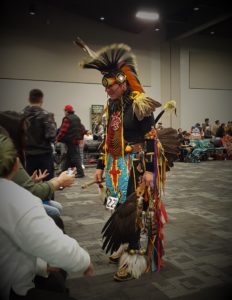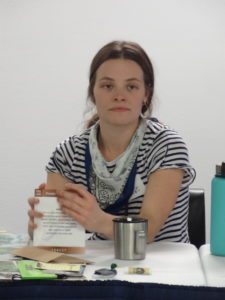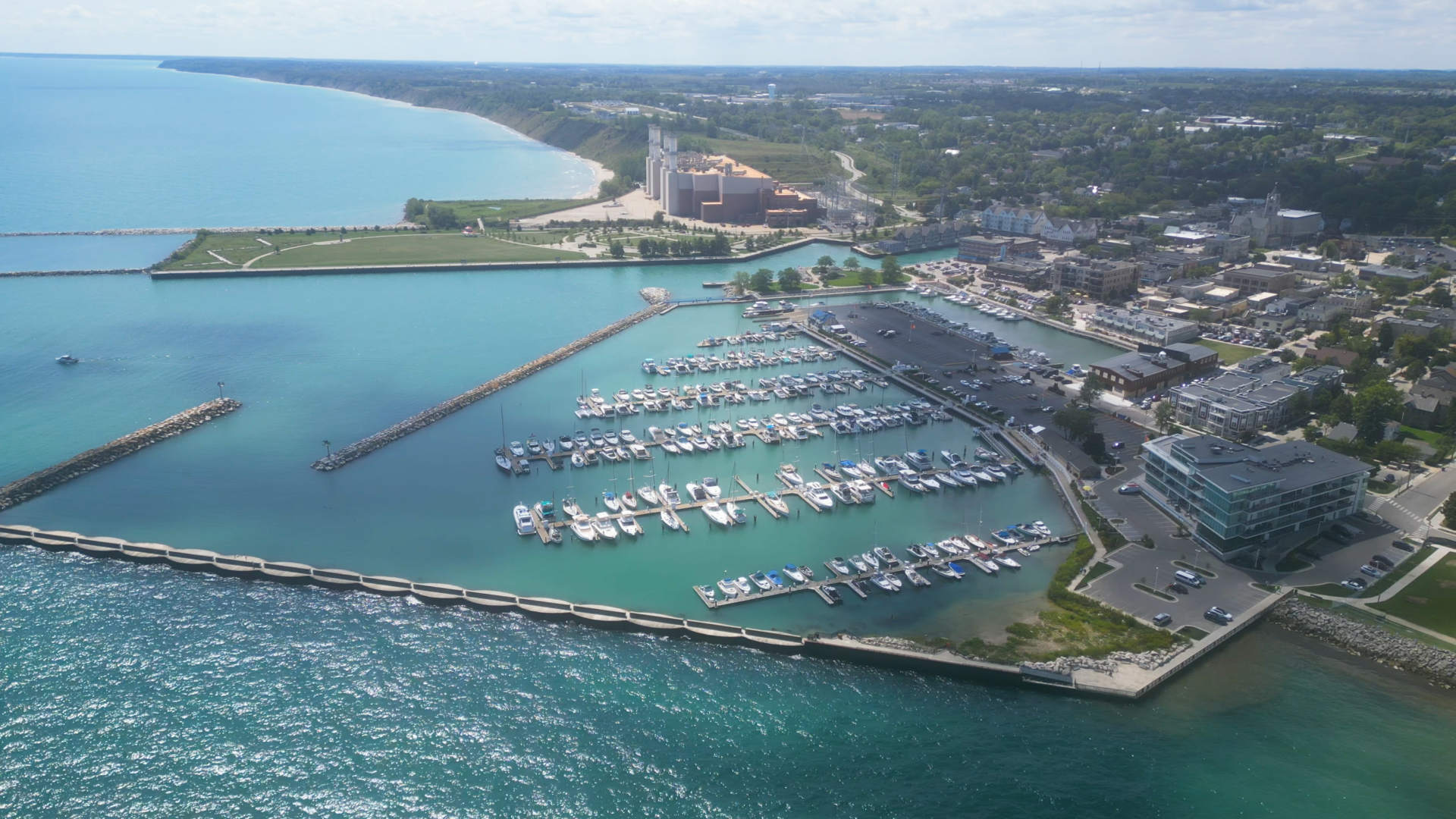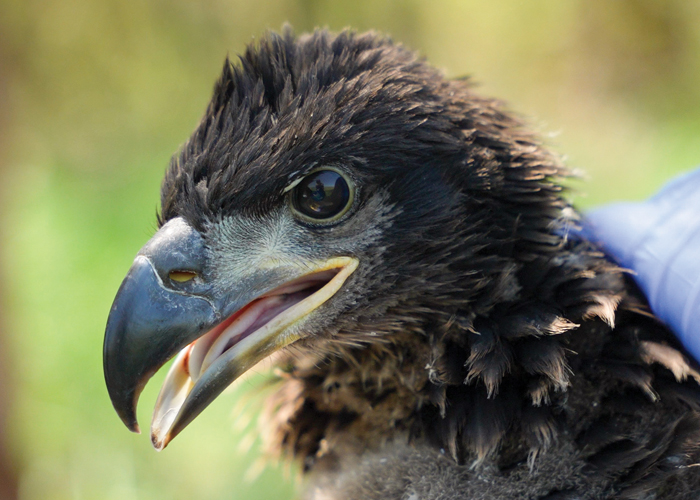
A dancer in regalia at the Gichi Manidoo Giizis Pow Wow. Image by Marie Zhuikov, Wisconsin Sea Grant.
More than 230 Ojibwe dancers filled the event center in the Black Bear Casino Resort in Carlton, Minnesota, dressed in their finest regalia. A colorful rainbow, the dancers slowly progressed in a clockwise circle, swaying to the beat of drums and singing, bells on their clothing jingling with each step.
Watching the Gichi Manidoo Giizis Pow Wow were 19 educators from Wisconsin, Minnesota and Michigan. A few even joined the dance when audience members were invited.
The pow wow was just part of a daylong workshop the teachers attended after they braved a January snowstorm to arrive in Carlton. As a reward for their travel through inclement weather, they learned more about Ojibwe culture, treaty rights and water ecology.
Named after the pow wow, the Gichi Manidoo Giizis Educator Workshop means, “Great spirit moon” or January in Ojibwe. The workshop was organized by the Fond du Lac Tribal and Community College, the Fond du Lac Band of Lake Superior Chippewa, and the Minnesota and Wisconsin Sea Grant programs.

Megan Hogfeldt. Image by Marie Zhuikov, Wisconsin Sea Grant.
Megan Hogfeldt, a water resource specialist for the city of Superior, was one of the workshop attendees. “What fascinated me was that this workshop is geared toward people who work in science and water quality education. A lot of what I do is communicating what my coworkers are working on or research that’s being done in the community. I try and explain to people and school groups the importance of water quality, recognizing that a lot of those people are also indigenous. It’s beneficial to me to have a framework for what I can include or language I can use for that audience.”
Hogfeldt and the other educators spent their morning learning about tribal history and treaty rights from Christina Dzwonkowski, a Great Lakes Indian Fish and Wildlife Commission game warden. Later, Kelsey Taylor, who works for the Fond du Lac Band, offered information about invasive species and traditional knowledge.
The educators had a chance to test their treaty rights knowledge by taking a Kahoot quiz on their phones. Kahoot is a game-based learning platform that makes it easy to quickly create games or trivia quizzes. A question arose during the quiz about how the tribes manage their fishery.
“If a limit on a certain lake is 300 fish, the tribes don’t fish 300 fish,” said Dzwonkowski. “They have a nice big buffer, so they might fish 220 fish out of that lake, just to take into consideration things change and so they don’t go over the limit. The tribes only visit that lake a single time to spear, and they only take a certain amount. Then they leave and don’t go back fishing there, unless it’s just plain hook and line like everyone else.”
After eating lunch, the teachers attended the pow wow, an experience that Hogfeldt appreciated. “I really like pow wows. I’ve had nothing but a positive experience and it’s very welcoming – very based on appreciation of community and nature,” she said.
Back at the workshop, the teachers divided into teams. They played the Watershed Game, a hands-on simulation developed by Minnesota Sea Grant and University of Minnesota Extension that helped them learn how land use impacts water quality and natural resources.
Cynthia Hagley, environmental quality extension educator with Minnesota Sea Grant, explained their seemingly impossible task. “We want you to reduce pollution as much as you can without your team going broke. And you have about 15 minutes to do it. Today, we’re focusing on sediment and why it’s a bad thing to have in the headwaters of a stream.”
In the evening, the teachers took their new knowledge and applied it to activities for a youth workshop held later that night, along with a traditional pow wow feast.
If you’re an educator and would like to get on a list for notifications about opportunities like this, please contact Anne Moser with Wisconsin Sea Grant by email at akmoser@aqua.wisc.edu or Marte Kitson with Minnesota Sea Grant at mkitson@d.umn.edu.





